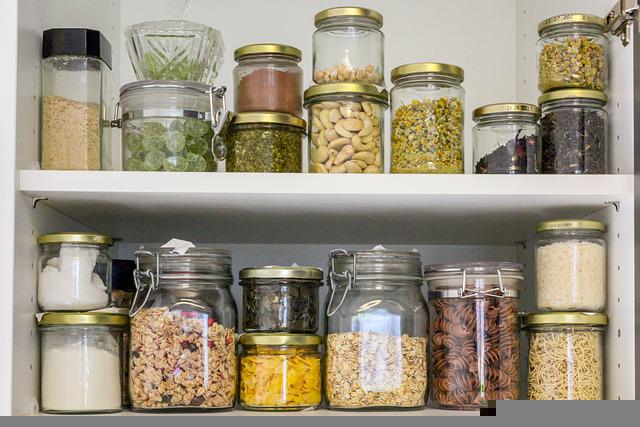Storing Food for Long Term
Storing food for long term helps you prepare for any disaster that comes your way. It’s also a great way to save money.
Talk about long-term food storage, and most people think of those buckets of dehydrated food. You can certainly go that route if you can afford it, but a smarter way is to buy and store foods you use regularly.

Storing Food for Long Term in Case of Scarcity
Food scarcity is increasingly becoming a global concern. Farmers in the United States and Europe are facing reduced supplies of fertilizer and seeds. In China, one in three farmers doesn’t have the fertilizer and seed needed for planting.
Having a supply of the food that you like on hand ensures you’ll have sufficient food to feed your family. If the dollar collapses, as some fear, food can be used as currency.
Experts are also concerned about the war in Ukraine creating a global food crisis. The pandemic had already disrupted food chain supplies. Add in the war in Ukraine, a major supply of corn and wheat, and you have countries such as Australia and Argentina paying more for food. Watch this video for more information.
What To Buy for Storing Food for Long Term
When storing food for long term, invest in canned goods as well as dried beans and rice. Dehydrated fruits and vegetables are also great to have on hand. Companies like Rainy Day Foods have a wide range of foods on hand, including cake mixes and butter powder.
My husband and I once used money from our income tax return to buy a year's supply of beans and dehydrated vegetables. We used them all the time and saved a ton of money. If you can afford to buy a year's supply or even a couple month's supply of food, that's great. It's not always possible for most.
If that's the case for you, stock up on your favorite food whenever there's a sale. Store the surplus in a closet or pantry. You can even keep canned goods under your bed if you lack the pantry space.
Do this whenever you come across a sale, and you'll always buy food at a lower price. Be sure to rotate your food so that the older items are at the front of the shelf.
You can also buy things such as beans and rice in bulk. People who belong to the Church of Latter Day Saints firmly believe in having a year's supply of food on hand. They often have stores where you can buy bulk supplies for a good price. Call around and see if there's such a store in your area.
Tips for Storing Food for Long Term
When you start storing food for long term, buy food that you like to eat. Don't buy those expensive buckets of dehydrated eggs unless you really like eating dehydrated eggs. You can keep a few hens in even the smallest backyard. The same goes for dehydrated meat. Dehydrate it yourself, but make sure you like it first.
My family has eaten dehydrated vegetables for years, and I really like them. They're not the same as canned or frozen, but they have better nutrients. They're also easy to throw in soups. Remember the three golden rules when storing food for long term.
1. Keep Out the Light
Light causes dehydrated fruits and vegetables to deteriorate more quickly. When exposed to prolonged light, dehydrated foods tend to lose their color and look less appealing. Always store your food in a cool, dark area.
2. Keep Out the Oxygen
One of the main causes of food deterioration is oxygen exposure. Keep the air out as much as possible. Vacuum seal your food to protect it. Don’t vacuum seal dehydrated food in plastic bags, especially dehydrated vegetables. They’ll clump together and become as hard as a rock. Instead, vacuum-seal them in glass jars.
Keeping the oxygen out of your dehydrated foods and other items such as pasta will also ensure that bugs don't grow. There's nothing worse than opening your pantry and having moths flitting out.
3. Keep Out the Moisture
Dehydrated foods that are exposed to humidity in the air will soak up that moisture. Dehydrated foods that get wet can grow mold and harmful bacteria. Be vigilant about keeping moisture out of your food.
If you can’t afford a food dehydrator, store your dehydrated foods in plastic bags and press out as much oxygen as possible. Then store the plastic bags in buckets. We did this before we could afford a food dehydrator, and it worked well.
When You're Ready To Start Storing Foods for Long Term
At Joyful Homesteading, you can find a wealth of information about storing foods, including food storage tips and tips on storing root vegetables and storing garden produce. We also have helpful information about storing water.







New! Comments
Have your say about what you just read! Leave me a comment in the box below.